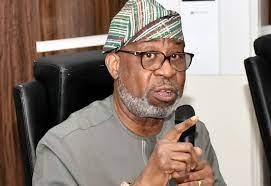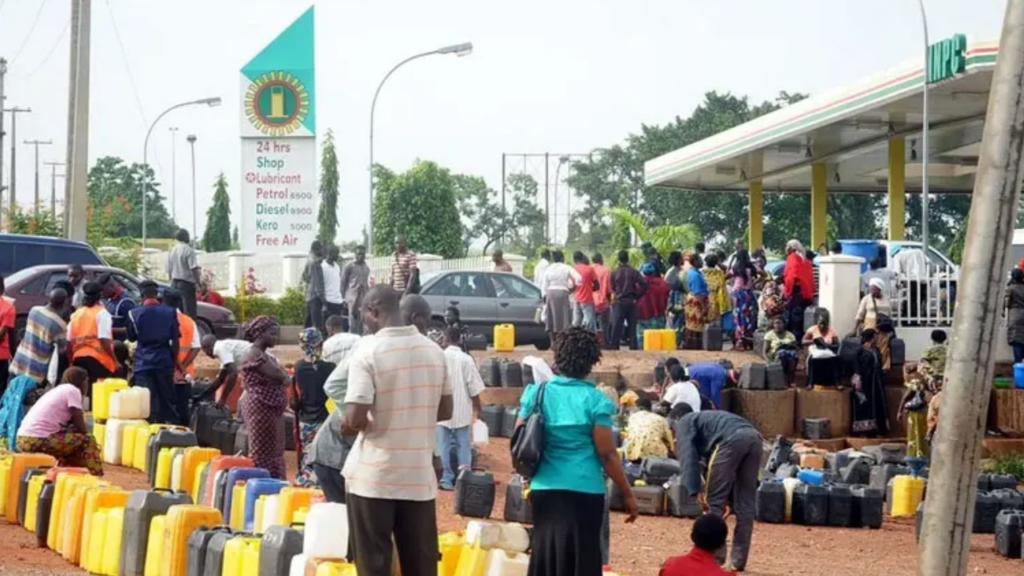Solid Minerals
Nigeria’s 15 Million Ton Annual Steel Production Target Doubtful
ABUJA – The federal government warned yesterday that the country might be unable to achieve the 15 million tonnes per annum capacity of local steel production set for the year 2020 in the nation’s drive to revamp the iron and steel industry.
The Minister of Mines and Steel Development, Mr. Musa Sada, sounded the warning in Lagos, while addressing stakeholders in the sector at a one-day forum organised by the Federal Ministry of Industry, Trade and Investment in collaboration with the Federal Ministry of Mines and Steel Development.
Sada explained that if activities in the iron and steel sector continued as it was currently being operated, it would certainly be unable to attain the 15 million tonnes per year target of locally manufactured steel, set for seven years from now.
Loathing the fact that Nigeria, at the moment, imports about 17 million tonnes of steel yearly and produces only 2.5 million tonnes locally, the Mines and Steel Minister stressed that the situation was more wasteful because the country possesses over two billion tonnes of iron ore deposit, as well as over one trillion tonnes deposits of coal, a major ingredient in the production of steel.
Meanwhile, the Minister of Industry, Trade and Investment, Mr. Olusegun Aganga, at the same forum, stated that the nation was aiming at ending the importation of petroleum products into the country by the year 2017.
Aganga noted that Nigeria, riding on the $16 billion investment commitment already made in the local petrochemical industry by both indigenous and foreign investors, was targeting the termination of importation of refined petroleum products into the country.
“With the $16 billion investment commitment in the petrochemicals industry of which $9 billion is from a local investor who has kicked off the setting up of an integrated petrochemical manufacturing plant, we are on our way to ending petroleum products importation by 2017,” he said.
Aganga added that the $9 billion integrated petrochemical plant being undertaken by the Nigerian investor requires the services of between 5,000 and 8,000 indigenous engineers, underscoring the need for rapid development of human capital within the country in pursuit of the industrial revolution objectives of the federal government.
He stated that in order to begin to address the serious human capital challenges facing the country, which would be further exposed as the industrialisation drive progresses, Industrial Training Fund (ITF), a parastatal under the Federal Ministry of Industry Trade and Investment in collaboration with the United Nations Industrial Development Organisation (UNIDO), was conducting the first ever National Skills Gap Survey (NSGS) with the result set to be released between March and April 2014.
Stressing the importance of mines and steel to the advancement of the nation’s economy, Sada said steel was expected to remain the world’s most important engineering material for some time to come.
He pointed out that backward integration is very important in steel production, saying that over two billion tonnes of iron ore deposits occur in various locations across the country while one trillion tonnes of coal resources occur in 13 states of the federation creating enormous potentials for Nigeria’s steel and metal industry with ever growing domestic market and access to neighbouring West African markets.
Sada said the Nigerian iron and steel sub-sector involved privately owned steel plants that use 100 percent scrap metals as raw materials. “There are several private foundry companies operating at low capacity, cold rolled steel mills that depends on the use of imported hot rolled coils as feed stock showing the huge gap that exist in the nation’s steel industry,” he said. He highlighted the major problems facing the steel industry as including Nigeria’s annual importation of about 17 million tonnes of assorted steel and allied products; local steel production being only from 100 per cent melting of scrap metals and also added that the issue of quality was a major concern.
– THIS DAY
Business
Nigeria set to boost Naira value and foreign reserve with local gold production, as Tinubu receives gold bar
IN a significant move to strengthen Nigeria’s economy, President Bola Tinubu received a symbolic gold bar on Sunday from the Minister of Solid Minerals Development, Dele Alake.
This gesture marks the commencement of the National Gold Purchase Program (NGPP), aimed at boosting the naira’s value and enhancing the country’s foreign reserves.
Minister Alake expressed gratitude to President Tinubu for his support of reforms in the solid minerals sector.
He highlighted that the NGPP, which involves sourcing gold from artisanal and small-scale miners and refining it to meet the London Bullion Market Association’s Good Delivery Standard, will substantially contribute to Nigeria’s economic stability.
Alake stated “This initiative will significantly increase our foreign reserves and strengthen the naira. The refined gold will be supplied to the Central Bank of Nigeria, marking a crucial step in our economic strategy.”
The presentation also underscored the first commercial transaction under the NGPP, establishing a centralized gold purchasing system that integrates small-scale miners, cooperatives, and production units across the nation.
This program is expected to provide a structured market for gold, fostering economic growth and stability.
He said, “The successful completion of the first commercial transaction clearly demonstrates the National Gold Purchase Program’s effectiveness. It has increased the nation’s foreign reserves assets and shown that using the Nigerian Naira to purchase a liquid asset traded in United States Dollars, such as gold, is a viable strategy. This transaction has also underscored the potential of the National Gold Purchase Program to enhance fiscal and monetary stability.”
Alake added that the initial commercial transaction under the program resulted in a +US$5 million boost in Nigeria’s foreign reserve assets.
The transaction involved refining over 70 kilograms of gold to meet the London Bullion Market quality standard and aggregating locally mined gold, thereby infusing approximately NGN6 billion into the rural economy.
President Tinubu expressed appreciation for the Ministry’s accomplishment in advancing the government’s goal of economic diversification by acknowledging and displaying the symbolic gold bar
Solid Minerals
FG Fingers Foreigners Sponsoring Banditry For Illegal Mining

The Nigerian Government has threatened to come down heavily on foreigners sponsoring bandictory as a way of sustaining illegal mining activities in parts of the country.
The warning was handed down in Abuja by Minister, Solid Minerals Development, Dr Oladele Alake, while receiving a delegation of the Nigeria-China Chamber of Mines led by its National President, Dr. Olugbenga Ajala.
Details of these were contained in a statement released by Head, Press & PR, Ministry of Solid Minerals Development, Alaba Balogun over the weekend.
The statement cited, Dr Alake, thus, “The government will come down firmly on these unscrupulous foreign operators sponsoring banditry to perpetrate illegal mining: let me use this medium to appeal through you to tell those sponsors to desist or face the full wrath of the law.”
According to Dr Alake, the Ministry is committed to establishing a multi-agency task force that will end the activities of illegal miners and their collaborators.
The Minster made it clear that the FG had given illegal miners a 30-day-ultimatum to legitimise their businesses, quit Nigeria or incur the wrath of the law.
According to him, this will help “to streamline and structure the Small-Scale Artisanal Miners for maximum yield to the Federal Government.”
The delegation paid a courtesy call on the Minsiter at the Ministry’s headquarters in Abuja.
Energy
Fuel Scarcity: Govt Yet to Increase Pump Prices – NMDPRA

By Edozie Obasi-Eze
Amidst heightening uncertainties in the domestic petroleum products market characterised by scarcity and irregular pricing, the Nigerian Midstream and Downstream Petroleum Regulatory Authority (NMDPRA) has declared that there’s no intention to review pump prices upwards.
This was contained in an advisory issued by General Manager, Corporate Communications, NMDPRA, Kimchi Apollo.
He stated that the Nigerian National Petroleum Corporation Limited (NNPCL) had imported PMS with current stock levels sufficient for 34 days.
In an attempt to address panic buying and speculations which have seen price of Premium Motor Spirit (PMS) oscillate between N180-N250 in the Lagos area, Apollo assured that there was enough quantity of the product in the country already.
He said, “Consequently, marketers and the general public are advised to avoid panic buying, diversion of products and hoarding.
“In keeping with the Authority’s responsibilities as outlined in the Petroleum Industry Act (PIA), the Authority assures the public that it would continue to monitor the supply and distribution of petroleum products nationwide, especially during this holiday season.”













